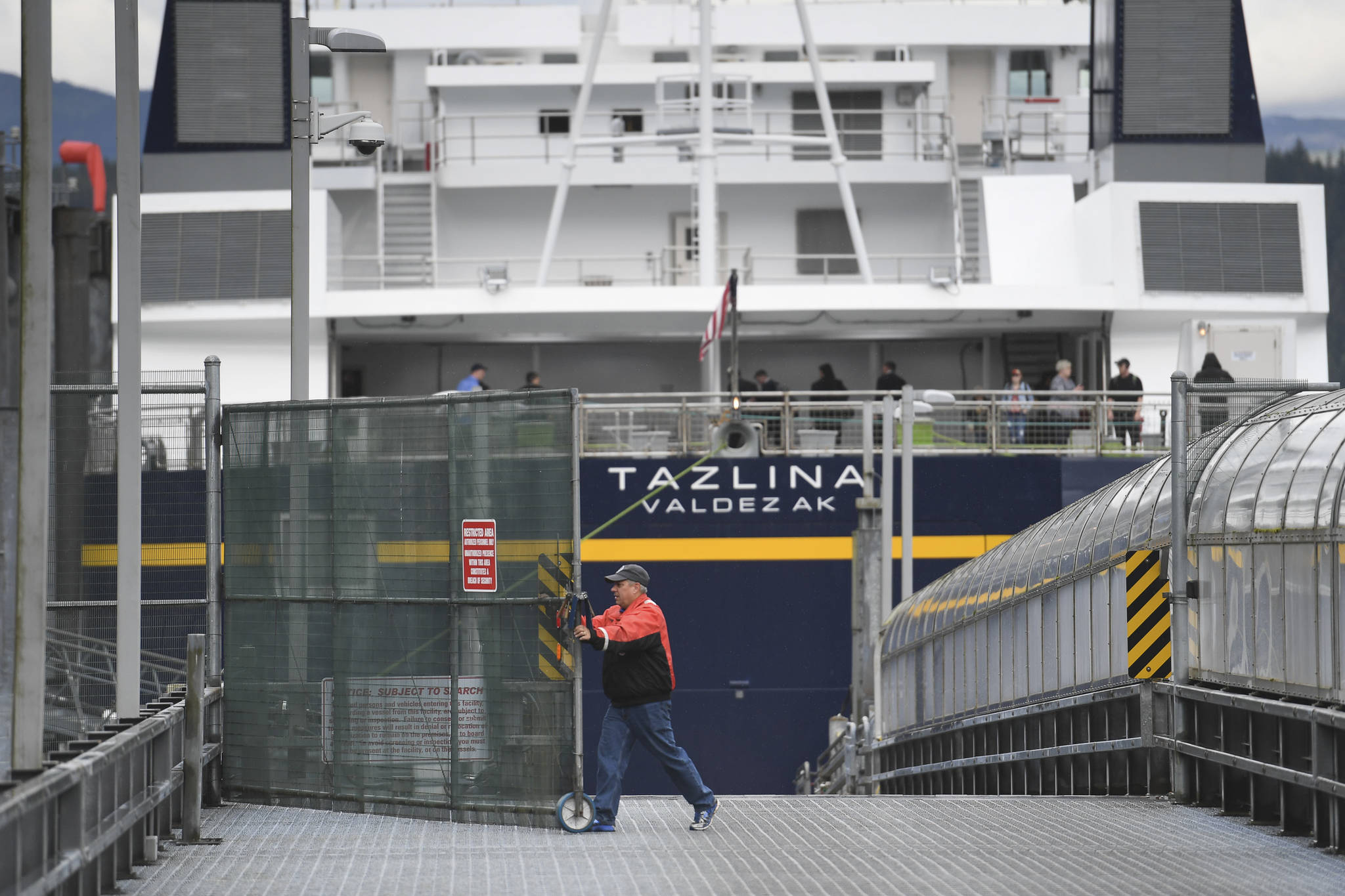After nine days of striking, the Alaska Region of the Inland Boatman’s Union of the Pacific came to an agreement with the state, ending Alaska’s first ferry workers’ strike since 1977.
The deal, reached in the late night hours of Aug. 1, was ratified by the union by a vote of 93 percent.
“It’s a win-win situation,” Robb Arnold, IBU regional vice-chair said by phone Tuesday. “The state got what they wanted and we got what we wanted.”
Top of mind for the union was health care. Several IBU members interviewed by the Empire over the course of the strike cited health care coverage as a primary concern.
Under previous offers made to the union by the state, workers would be made to cover their own health care costs while they were not “dispatched,” or assigned to a vessel.
“If you don’t get dispatched you don’t get health care,” Arnold said. “Sometimes things happen with dispatch and you don’t go out,” he said.
Lapses in health care coverage were causing members to have to pay out-of-pocket costs for health services, including prescription medication.
Arnold said the union made some concessions in terms of pay in order to reach the agreement over health care coverage. The union accepted no retroactive pay increases for the last three years while they were negotiating with the state. Ferry workers will receive a 1.5 percent increase in 2020 and another 1.5 percent increase the following year. The union’s contract was negotiated for three years.
Another win for the union was upfront compensation for accommodations when workers are called to Juneau to work. Certain vessels don’t have crew quarters, and when assigned to those ships for days at a time crew members must stay in a hotel or other off-board accommodation. Under previous arrangements, crew members had to pay their own money up-front for a hotel or other place to stay.
In tourist-heavy towns like Juneau, that can mean having to shell out over a thousand dollars just to go to work. Workers would be reimbursed, but that process could take several weeks, potentially leaving workers in financial straights.
Arnold said he wanted to thank the community for all their support and for being patient with the stoppage in service.
The strike left locals and travelers stranded and businesses wondering about their stocks. Some travelers found themselves without any means of transporting their vehicles, save for private barge, which is expensive.
Some lawmakers questioned the timing of the strike, given the state’s budget crisis.
“I believe that this particular strike is ill-advised,” Rep. Louise Stutes, R-Kodiak, said when asked about the strike shortly after it began. IBU “can see the issues that we’re grappling with now in relation to the state’s budget. I would not say there has been a lot of consideration in this strike for the people of Alaska,” she said.
Rep. Jonathan Kreiss-Tomkins, D-Sitka, said that he felt the timing of the strike, at least politically, was “self-destructive.”
“I’m left in a state of confusion at what is trying to be achieved,” he said.
In the end, however, both the union and the Department of Adminstration seemed pleased with the outcome.
“I’m happy about a lot of the terms,” Commissioner Kelly Tshibaka said in an interview with the Empire Tuesday. “I’m happy IBU are contributing to their health care, I’m happy about the 3 percent increase over three years.” Tshibaka called the pay increase “fair and equitable.”
There were concessions the union made Tshibaka was happy with as well. She said that union members would not be allowed “dispatch selection,” or the ability to choose which vessels they serve on and when.
Tshibaka also said she was pleased with how the mediation ended. She said that union leaders worked hard to reach an agreement and that she felt the negotiations ended on a positive working relationship.
“I saw some real intent there on behalf of the IBU leaders,” she said.
IBU negotiators, too, said they were pleased with how the negotiations ended and that there was a mutual feeling of wanting to move forward.
• Contact reporter Peter Segall at 523-2228 or psegall@juneauepmire.com.

